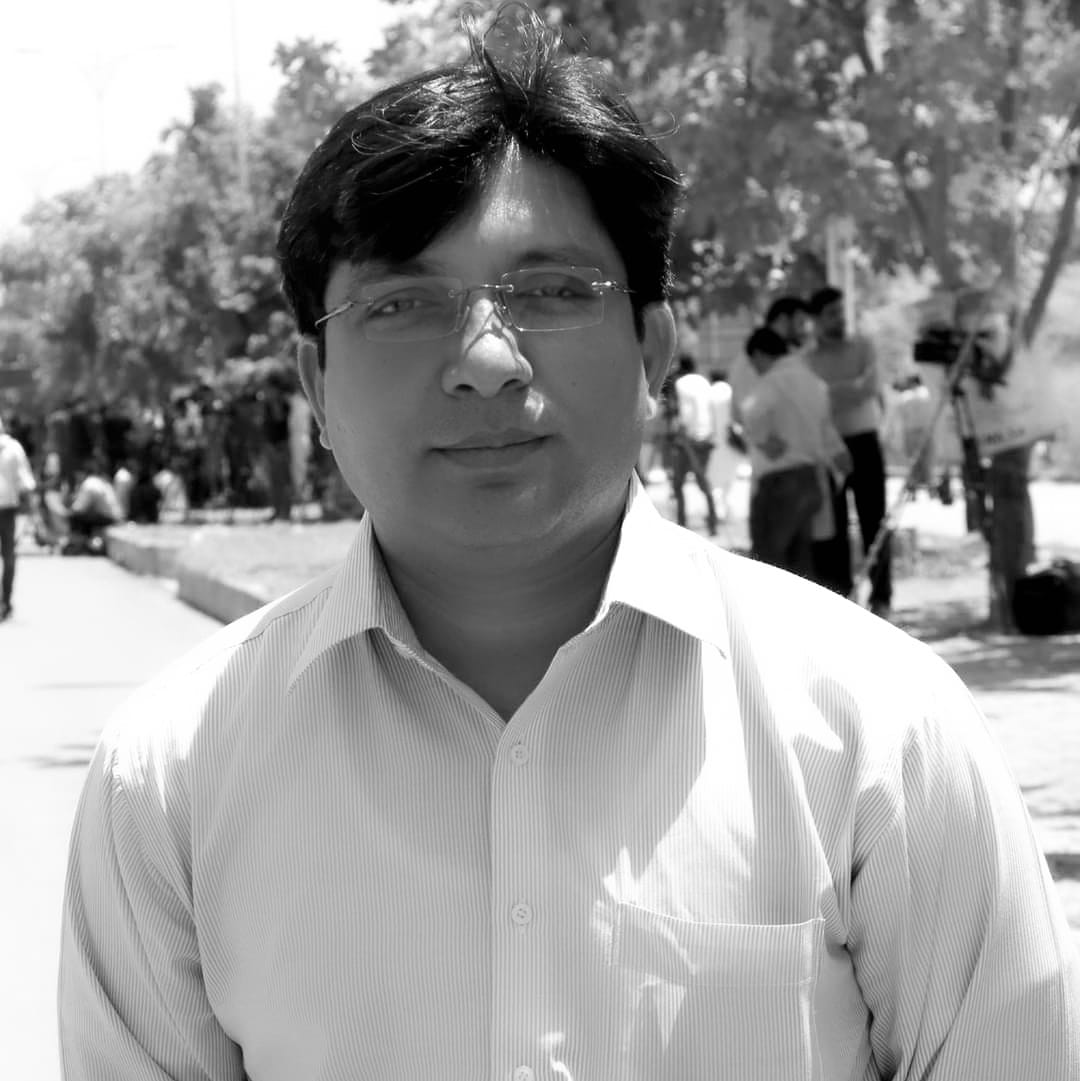Zeeshan Javaid

The writer is a US-based Pakistani journalist. He writes on issues related to foreign affairs, cross-border conflicts, terrorism, and extremism. He can be reached at zeeshan.javaid9@gmail.com
Rochester NY: A high-ranking U.S. diplomat specializing in South and Central Asia has recently spoken out about the accusations of plotting to remove Pakistan’s former Prime Minister Imran Khan in 2022.
During his testimony before the House Foreign Relations Committee on Wednesday, Donald Lu, the U.S. Assistant Secretary of State for South and Central Asia, firmly denied any involvement by himself or the U.S. government in instigating Khan’s removal.
“These allegations, this conspiracy theory, is false, it is completely untrue,” Lu responded to a question by committee Chairman Representative Joe Wilson, a Republican from the U.S. state of South Carolina.
In April 2022, Khan was removed from power through a parliamentary vote of no-confidence.
Khan has claimed that a confidential diplomatic cable, sent by the then-Pakistani ambassador to the U.S. Asad Majeed Khan, supports his allegations that the United States colluded with Pakistan’s military and opposition leaders to oust him from power. The cable detailed a meeting with Lu in Washington on March 7, 2022.
Based on Ambassador Khan’s alleged cable, it appears that during the meeting, State Department officials suggested to Khan that if he were to step down due to his neutral stance on the Russian invasion of Ukraine, it could potentially lead to improved relations between Islamabad and the powerful military in Pakistan.
During the invasion, the Pakistani prime minister was in Moscow for talks with Russian President Vladimir Putin, without expressing any condemnation of the event.
“If the no-confidence vote against the Prime Minister succeeds, it is possible that all will be forgiven in Washington, as the Russia visit is being seen as a decision made by the Prime Minister. … Otherwise, I believe it will be challenging moving forward,” the document quoted Lu as telling the Pakistani ambassador.
Although the State Department has consistently denied any involvement in Khan’s removal, the department’s spokesperson Mathew Miller admitted last year that the Biden administration was displeased with Khan’s efforts to establish closer ties with Russia.
Miller stated during the press conference that they privately conveyed concerns to the government of Pakistan regarding the visit of then-Prime Minister Khan to Moscow, which coincided with Russia’s invasion of Ukraine. Additionally, we publicly expressed our concerns about this matter.” “We have clearly addressed that concern.
Miller stated during a routine press conference in response to a question regarding The Intercept’s reporting.
The allegations made by Khan have been dismissed by both the Pakistani military and his opponents.
The former Pakistani prime minister is currently facing a 10-year imprisonment on charges of disclosing the contents of the secret cable, a charge he denies as politically motivated.Biden’s Budget Proposal: Implications for Pakistan’s Diplomatic Landscape
Lu criticized the reporting of the diplomatic cable in Pakistani media for being inaccurate.
Lu highlighted that Pakistan’s former ambassador Khan had also testified to his government that there was no U.S. conspiracy to remove the prime minister from office.
In March 2022, Pakistan’s National Security Committee, led by Khan, issued a demarche to the U.S ambassador regarding their perceived “interference” in Pakistan’s politics.
Following Khan’s removal, a different NSC committee led by then-Prime Minister Shehbaz Sharif determined that the diplomatic cable did not suggest any U.S. conspiracy.
“The sovereignty of Pakistan is highly regarded,” Lu emphasized the importance of allowing the Pakistani people to independently select their leaders through a democratic process during Wednesday’s hearing.
The assistant secretary faced numerous disruptions from members of the audience who accused him of dishonesty. At various points during the proceedings, certain individuals in attendance were removed by Capital Police due to their disruptive behavior.
Lu informed the committee about the numerous death threats he has received, along with threats to his family, all stemming from what he considers to be baseless accusations following Khan’s departure.
Examining the election irregularities
Regarding the reports of irregularities in Pakistan’s February 8 general elections, Lu mentioned that the Biden administration has been consistently urging Pakistani authorities to conduct an investigation.
The elections in Pakistan were marred by numerous controversies and significant delays. The party of Khan faced a state-backed crackdown, instances of pre-election violence including terror attacks, suspension of mobile internet services on Election Day, and a significant delay in announcing results. These events raised concerns among both local and international observers regarding the fairness of the vote.
A letter was sent to President Joe Biden and Secretary of State Antony Blinken on February 28 by a bipartisan group of 31 members of the U.S. Congress.
The letter urged the administration to refrain from recognizing Pakistan’s new government until a comprehensive investigation into election interference had been carried out, ensuring transparency and credibility.
On April 13, Blinken issued a statement congratulating Sharif on his election as prime minister of Pakistan. The U.S. ambassador to Islamabad, Donald Blome, has had the opportunity to meet with Pakistan’s new president, and prime minister, as well as foreign and finance ministers.
Representative Greg Casar, a Democrat from Texas who was one of the authors of the letter, raised concerns about Lu’s stance on the administration’s recognition of Sharif’s government.
“Recognition is not something we actively seek or withhold,” Lu stated that the decision to engage with the government is within our control.
The election in Pakistan resulted in a parliament with no clear majority. Khan’s party was forced to nominate candidates as independents due to the lack of a unified election symbol.
Despite PTI winning the majority of seats in the lower house of the parliament, Sharif’s party, which came in second, formed a coalition government with Khan’s opponents.
